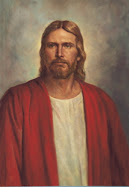Prophets of God
Very fitting to have this topic, considering the recent loss of our dear Elder L. Tom Perry.
The work of a Hebrew prophet was to act as God’s messenger and make
known God’s will. The message was usually prefaced with the words “Thus
saith Jehovah.” He taught men about God’s character, showing the full
meaning of His dealings with Israel in the past. It was therefore part
of the prophetic office to preserve and edit the records of the nation’s
history; and such historical books as Joshua, Judges, 1 and 2 Samuel,
1 and 2 Kings were known by the Jews as the former Prophets. It was also
the prophet’s duty to denounce sin and foretell its punishment and to
redress, so far as he could, both public and private wrongs. He was to
be, above all, a preacher of righteousness. When the people had fallen
away from a true faith in Jehovah, the prophets had to try to restore
that faith and remove false views about the character of God and the
nature of the divine requirement. In certain cases prophets predicted
future events, such as the very important prophecies announcing the
coming of Messiah’s kingdom; but as a rule a prophet was a forthteller rather than a foreteller. In a general sense a prophet is anyone who has a testimony of Jesus Christ by the Holy Ghost, as in Num. 11:25–29; Rev. 19:10.
We have 15 prophets on this Earth today: all 3 members of the First Presidency plus the 12 members of the Quorum of the Twelve Apostles. All the men have the authority and duty to warn us, and to make known God's will. What may confuse people but should be clarified for all is that we believe only one man has the authority to be THE Prophet. The difference between prophet with a lower case letter and Prophet with upper case is that the upper case Prophet is the also the President of the Church of Jesus Christ of Latter-day Saints, the highest authority on Earth (Christ being the highest in the Church).
However, these 15 men are not just prophets to the Church; they are prophets to the world.




No comments:
Post a Comment